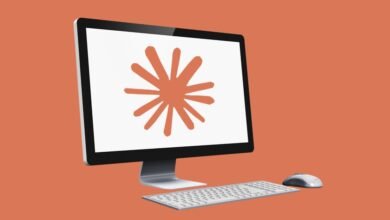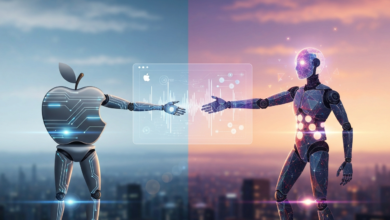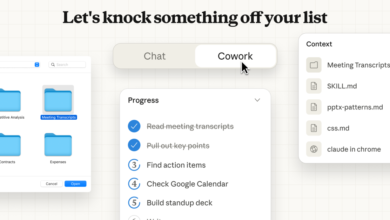AI Agents’ Future & Trump’s Tech Protection Policies Abroad

▼ Summary
– AI agents are AI models that can perform tasks like bookings, form-filling, and coding collaboration, with companies like OpenAI and Anthropic leading development.
– A recent LinkedIn Live event discussed the potential, limitations, and risks of AI agents, featuring insights from MIT Technology Review editors.
– Concerns include unpreparedness for AI autonomy, risks of cyberattacks by AI agents, and financial losses from weaker AI models in negotiations.
– Anthropic’s chief scientist predicts improvements in AI agents, while a new Chinese AI agent, Manus, is generating hype but requires testing.
– The Trump administration is protecting US tech firms abroad by opposing foreign taxes and regulations, as tech firms lobby to influence US AI policy.
The rise of AI agents is transforming how we interact with technology, offering both groundbreaking opportunities and significant challenges. These intelligent systems go beyond simple information retrieval, actively performing tasks like scheduling appointments, completing forms, and even assisting with complex coding projects. Leading tech firms such as OpenAI and Anthropic are at the forefront of this revolution, developing advanced agentic products designed to streamline everyday workflows.
During a recent LinkedIn Live discussion, industry experts explored the potential of AI agents, highlighting their capabilities while also addressing their current limitations and risks. The conversation emphasized the need for caution as these systems gain greater autonomy, a topic covered in depth across several insightful articles.
Key developments in AI agents include:
- The growing debate over whether society is prepared for AI systems making independent decisions.
- Predictions from Anthropic’s chief scientist on how agents will evolve in the near future.
- Emerging cybersecurity threats, as AI-powered tools could lower the barrier for large-scale hacking.
- The economic implications of AI-to-AI negotiations, where less sophisticated models may disadvantage users financially.
- A hands-on evaluation of Manus, a highly anticipated general AI agent from China.
In other tech news, the Trump administration is taking steps to shield US tech companies from foreign regulatory pressures. By leveraging trade policies, the government aims to prevent other nations from imposing additional taxes, tariffs, or restrictive regulations on American firms. This strategy reflects broader efforts to maintain the competitive edge of US technology in global markets. Meanwhile, tech giants are increasingly influencing AI policy discussions domestically, shaping the future of innovation and regulation.
The rapid advancement of AI agents and shifting political landscapes underscore the need for thoughtful oversight and strategic planning. As these technologies become more integrated into daily life, understanding their risks and rewards will be crucial for businesses, policymakers, and consumers alike.
(Source: Technology Review)





